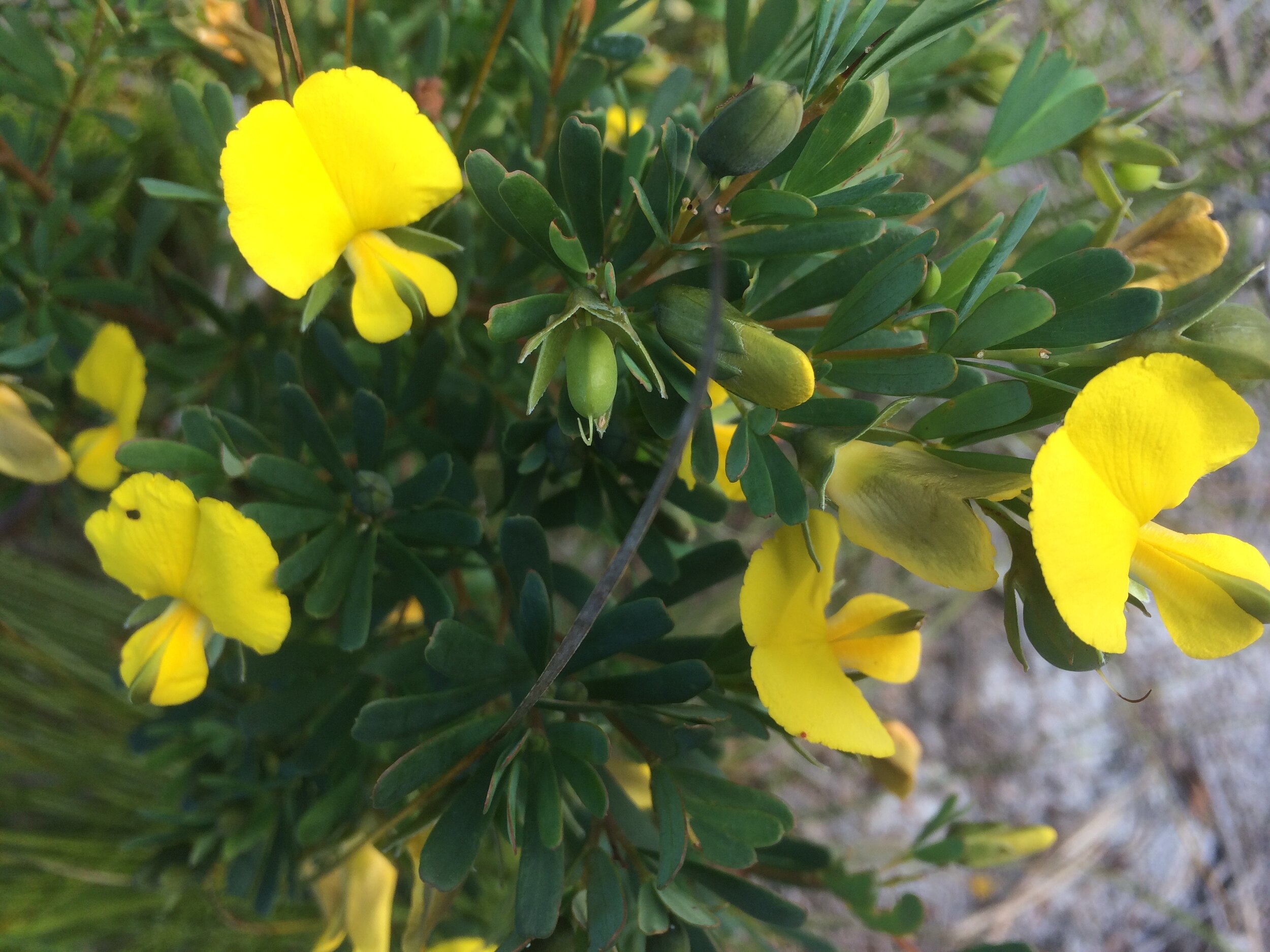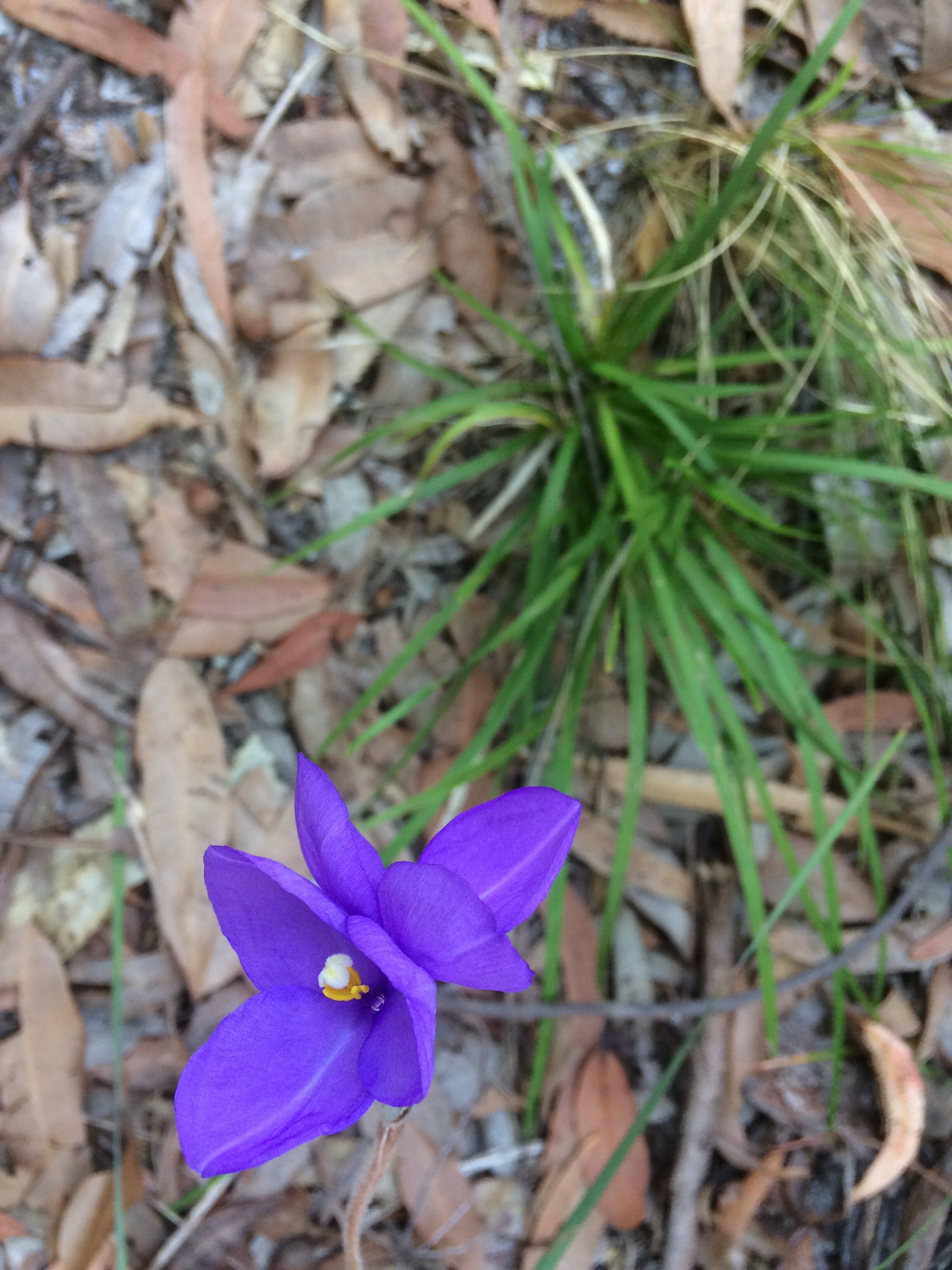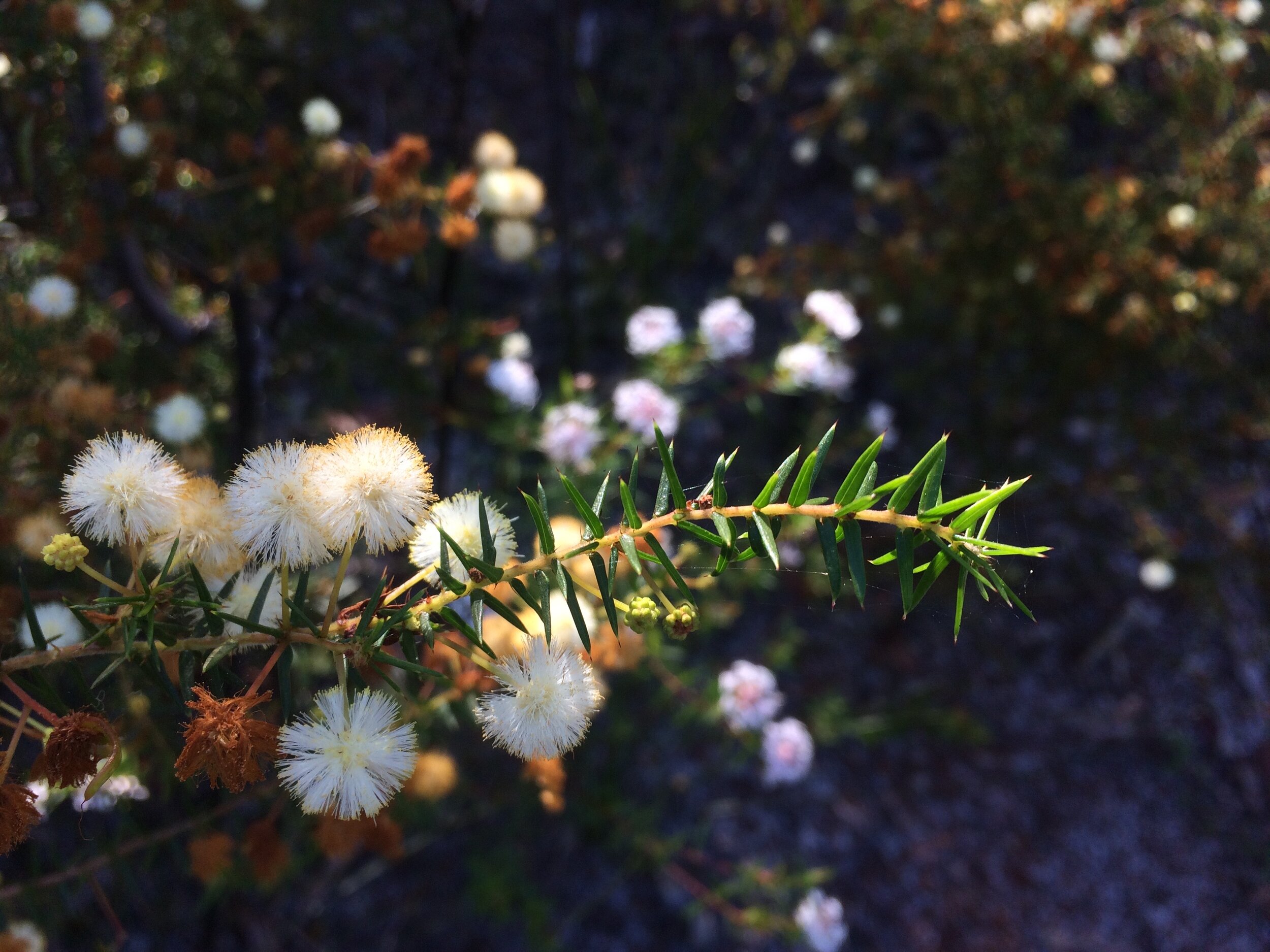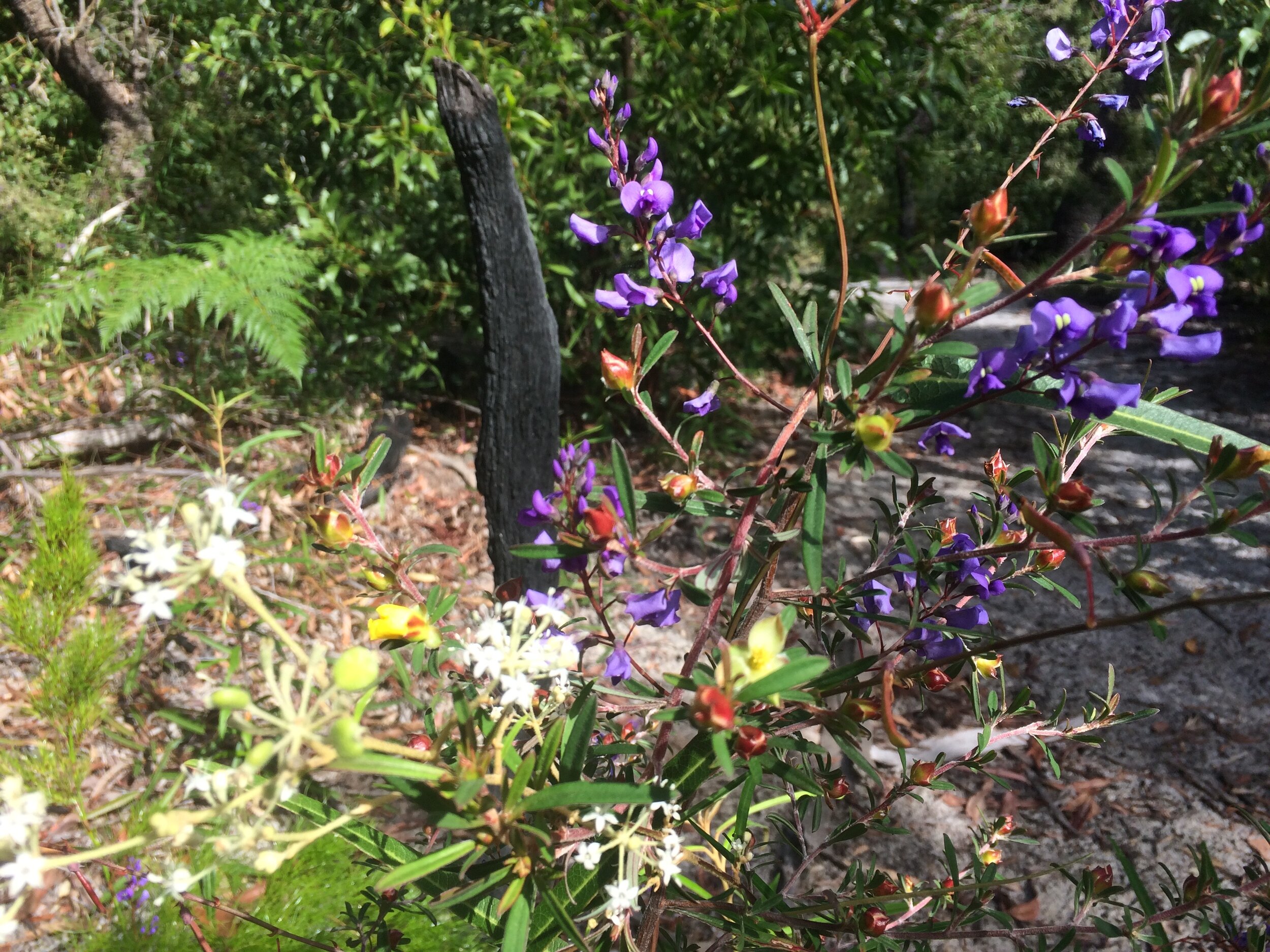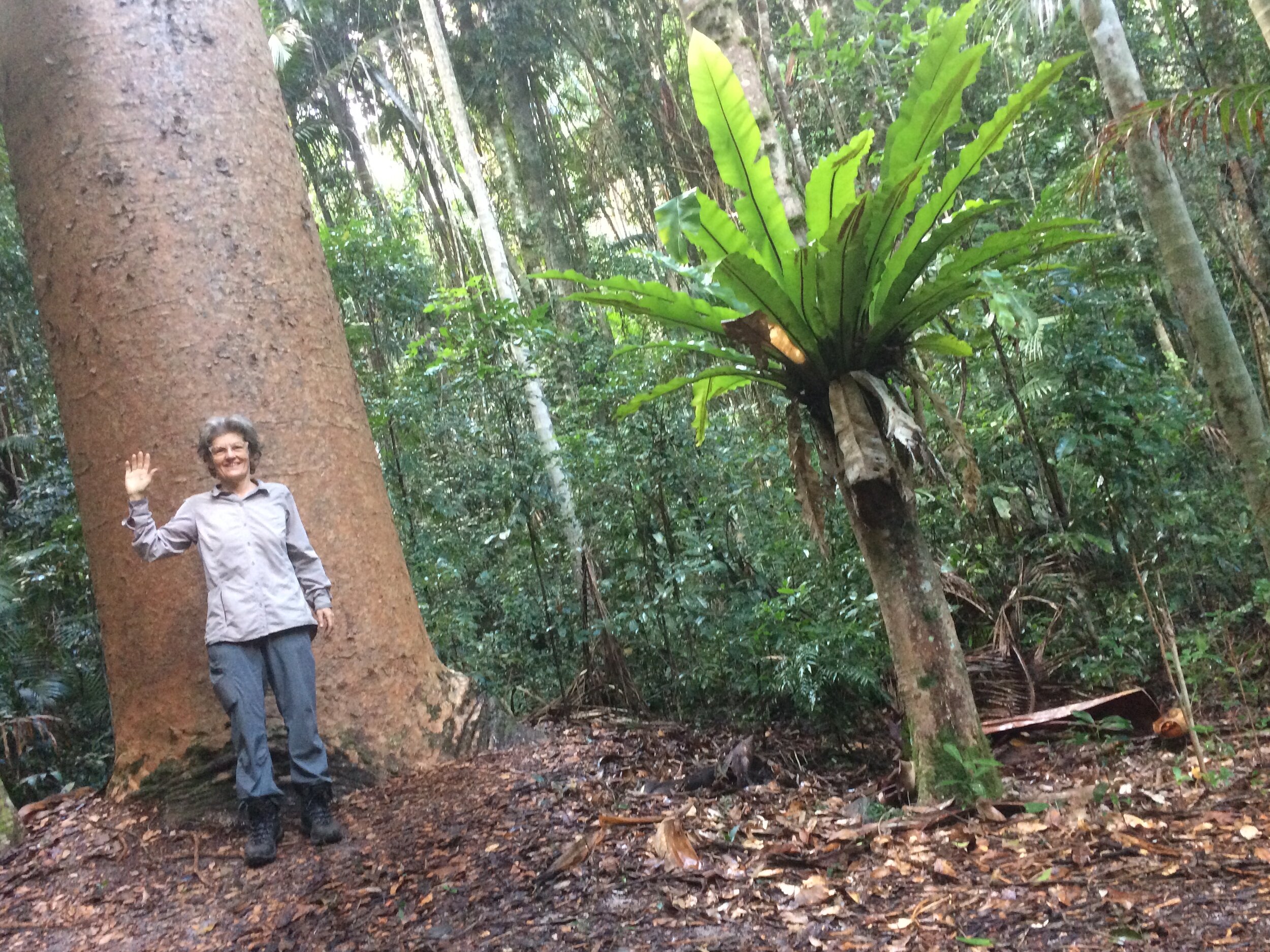Lessons from Cooloola and Braiding Sweetgrass
/Shadow and footprints on cooloola sandpatch
“I wanted to know why we love the world, why the most ordinary scrap of meadow can rock us back on our heels in awe.”
You know you will have to cross the Cooloola sandpatch on the second morning, but overnight winds have blown away yesterday’s human footprints which might have marked the path for you and so you will have to rely on a compass.
You don’t like following a compass because you are easily lost. It’s such a relief when you see a walker coming in the other direction because if you head for the walker at all times, you believe, you will find the trailhead on the other side.
You are in the middle of the sandpatch when the walker disappears entirely.
Sandpatch is an odd word. It may be two words, words that swallow walkers.
Litoria campsite has large eucalyptus trees you can look up at while lying on one of the wooden platforms in the communal area stretching muscles that don’t want to stretch. You could be convinced that these trees are sentient. You think this campsite is named for littoral rainforest, although the second t is missing, you realise (and it’s not a rainforest) but it is named for a frog. Literally.
You meet four young people doing their Duke of Edinburgh qualifying camp and the two teachers from Coomera Anglican College who would be on holiday if they weren’t doing this for the students. You know young people are balm to old and weary souls; they shout and laugh and play mathematical games with dice and tell you of the hope you once had for the future. Here among the eucalyptus trees of a literal forest, their hope seems more than possible, and their teachers more than ordinarily good humans.
Still, you know there is not always justice. The world doesn’t work like that.
The first day, you walked behind the dunes and up the hill to Brahminy campsite overlooking the ocean. It was very hot, although it is winter. The trees that would have provided shade burned in the wildfire started in the spring of 2019 by a beach camper who threw coals that were not quite extinguished from a brazier onto the dunes. The grass caught alight. The fire spread to the forest which burned for three months.
Some trees are sprouting leaves straight from their trunks now, epicormic growth that will help them survive. Many have no leaves and are dead.
At night at Dutgee campsite by the Noosa river, there are blue lights over the ground in the beam of your head torch. You think they might be fireflies until you look closer and see that they are tiny spiders and the blue lights are the lights of eyeshine, tapedum lucidum, a layer of tissue in the eyes of many vertebrates that reflects visible light and improves night vision. In the morning, when you set out before dawn, there are thousands of these blue lights on the trail.
You see the purple and gold flowers growing next to one another. You are in Australia, twelve thousand miles from Robin Wall Kimmerer in the United States whose luminous book Braiding Sweetgrass, a scientist poet’s meditation on indigenous and scientific knowledge, speaks to this very matter.
As a botany student, Kimmerer noticed Canada aster with its purple flowers would always grow near goldenrod with its bright yellow flowers, creating a colour combination of great beauty. She wanted to study why but her academic adviser told her if she had wanted to study beauty she should be in art school not science. Years later, as a professor bringing together her science and the indigenous knowledge of her ancestors, Kimmerer returned to the question, discovering that purple and gold colours are pleasing not only to human eyes, but to the eyes of bees, which is why these purple and gold flowers grow next to one another.
Here, on the trail to Cooloola in the other hemisphere, the same colours are doing the same good work.
The giant Kauri pines at the rainforest end of the walk have naked trunks. You must not stand under Kauri pines between December and March as their fruit might fall on your head and cause death but now it is June. You stand under the tree bravely and record the moment using your telephone camera perched on your hiking pack to take the picture.
You swim naked in a perched lake which is a lake on sand that uses the rotted vegetation to create its basin. The water is sweet and cold. Not a human soul, not one, molests you.
It is day five. The sound of a whip bird is as clear in your ears as it will ever be.
You hear the owl. You might be starting to understand. Probably not.
Brave writer under kauri pine.

